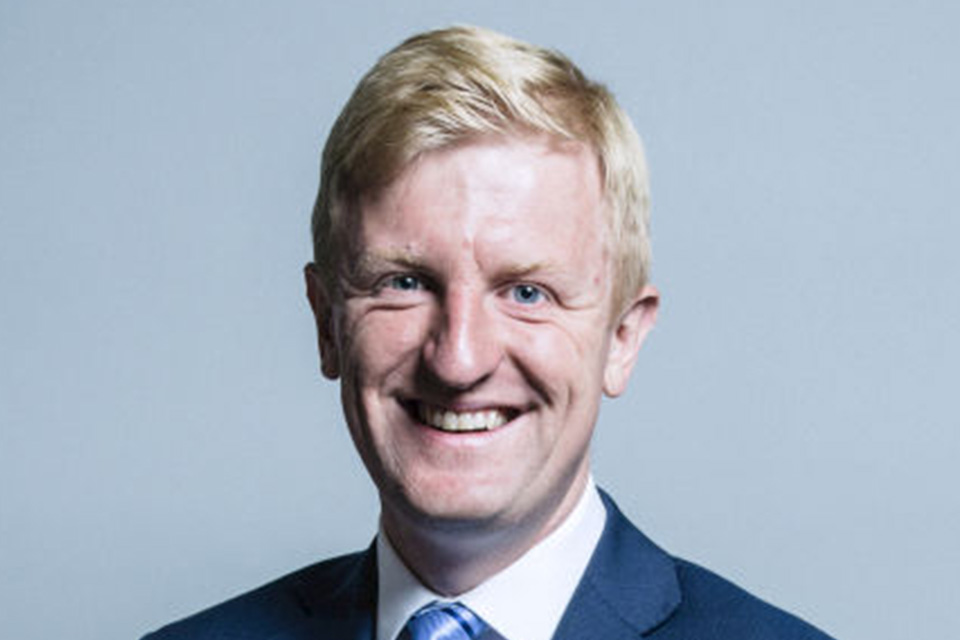John Major – 1979 Maiden Speech to the House of Commons
Below is the text of Mr Major’s maiden speech to the House of Commons, made on 13th June 1979.
I am grateful to you, Mr. Deputy Speaker, for calling me so rapidly after my return to the Chamber. I apologise to the House for my absence from the Chamber for part of the debate. I hope that hon. Members will accept my assurance that it was unavoidable for brief periods.
It is now 23 years since I first sat in the Gallery and listened to the 1956 Budget debate. I confess that at that time I had hoped to take part in debates in the House but I did not imagine how long I should have to wait. At that time I did not imagine that I would have the privilege of representing such an ancient and famous constituency as Huntingdonshire, nor did I imagine that I should follow such a distinguished predecessor as Sir David Renton.
Huntingdonshire is a remarkable constituency in many ways. It is an ancient constituency. It has returned Members to the House since the first Parliament of Simon de Montfort. It is proud of that tradition. It is proud because amongst its former Members was, for a brief period, Oliver Cromwell. He caused your predecessors, Mr. Deputy Speaker, more trouble than I anticipate causing, at least in my early days.
Huntingdonshire also has a happy tradition that I shall encourage it to retain –
Many hon. Members will have known Sir David for many years. They will recognise that he was always elected on merit. He served his country, his constituents and his party –
In Huntingdonshire today Sir David is held, as he has been for many years, in great respect and is regarded with great affection. He will miss the House. I formed the impression that he loved the place. From what I have heard from right hon. and hon. Members from all parties, the House is also likely to miss his presence. I shall be satisfied if I am able to retain the affection of my constituents and colleagues as David retained it for 33 years.
In his Budget Statement my right hon. and learned Friend said that he and his three predecessors framed their first Budgets in difficult circumstances. That is not surprising. It was largely because of mismanagement of the economy on many occasions and difficulties that arose that there was a change of Government at a general election and a new Chancellor had the opportunity to present a Budget.
If we accept that thesis as being accurate, we can see immediately the consequences and importance of the first Budget of a Parliament –
I believe that public opinion requires four things of the Government in terms of economic management. It requires them to cut taxes, to curb inflation, to create new jobs and, as far as possible, to maintain satisfactory public services. But the simple truth is that although public opinion may require all those four things, with the best will in the world the Chancellor and his colleagues cannot possibly achieve them all at the same time. In order to create jobs and to maintain public services, it is necessary first to cut taxes and to curb inflation.
My right hon. and learned Friend made a very bold start in that respect. Indeed, some Opposition Members would claim that his steps were rather too bold for comfort. The Leader of the Opposition said that it was a reckless Budget, but I suspect that if his party had permitted that kind of Budget to be introduced a year or two years ago, the right hon. Gentleman might have remained Prime Minister or at least have lost the election by a slightly less decisive margin.
The Budget is in many ways bound to be controversial, as all Budgets are. I hope that it will not seem niggardly to make the point that the success of this Budget over a period will certainly depend upon the Government’s determination and success in restraining public expenditure. In the natural course of events, they are bound to face pressures within and outside the House to break with their cash limits and to increase the public sector borrowing requirement that they have set themselves.
Indeed, if the tapes are correct –
If we back away from the cash limits and the economic management that we have set ourselves, we shall face a distinct change in economic policy. Therefore, I was pleased to hear my right hon. Friend the Chief Secretary this afternoon reiterate that the Government’s commitment to spending cuts and to restraining the level of public expenditure generally was substantial and that the Government intend to keep to it.
Whenever we talk about spending cuts there is bound to be a certain amount of uproar. It is never popular to cut services. But it seems that much of the uproar which is currently being engendered is to a large extent synthetic. However, seeing the hon. Member for Birmingham, Perry Bar (Mr. Rooker) in his place, I would exempt from that criticism those Opposition Members who sit below the Gangway. It seems that they are in opposition whomsoever is in Government. I doubt that their anger is at all synthetic. No doubt the right hon. Member for Leeds, East (Mr. Healey) would agree that they are continually in opposition.
I think that the public spending cuts are acceptable. I agree that difficulties will certainly be faced, most notably in local government. I propose to deal with that matter later. The public expenditure cuts are tolerable, provided that they are seen to be fair. I think that they will be seen to be justified if they are successful in curbing inflation at a time when taxes have been reduced as well.
Perhaps I may give an illustration of the equity that is necessary if we are to carry this policy through. In this respect I shall talk about the proposed reduction in the rate support grant. I am prepared to support a cut in the total level of rate support grant, but I think that it will be seen as unfair in some quarters if those local authorities which pruned expenditure in recent years are now to suffer disproportionately to fund those which overspent.
Problems have arisen in Cambridgeshire in recent years because of the distribution of the total sum of rate support grant. Cambridgeshire and Huntingdonshire have the most rapidly increasing population of any part of the United Kingdom. That is substantially because Cambridgeshire, on the outskirts of Peterborough, and, in my constituency, St. Ives, St. Neots and many villages have encouraged and accepted overspill from the large cities to mitigate the problems there. But regrettably, having done that, they have found no amendment in the way that the rate support grant has been distributed and they now receive approximately 40 per cent. of the needs element which goes to the inner city areas.
Having spent a great deal of my youth in Brixton, I accept that there are great problems in the inner city areas and that they need to be dealt with, but I trust that the Government will look at the maldistribution of the rate support grant, if not in time for the next distribution, at least in time for the distribution which will follow that.
The most important aspects of the Chancellor’s Budget Statement, if one pitches one’s mind forward to the medium term, are those elements which we trust, and I believe, will lead to a growth in jobs. In Huntingdonshire and elsewhere, there is a desperate need not just for the maintenance of existing jobs but for the physical creation of new jobs to reduce unemployment and to take up the increasing numbers who are leaving school and will be seeking jobs for the first time.
In my constituency, for the reasons that I mentioned, the population has doubled since 1966, but the number of jobs has not doubled or anything like it. In many villages, where some right hon. and hon. Members may think there are no problems, there are no local jobs for the youngsters who have grown up there and left school. There is no local employment for them. Because of the maldistribution of the rate support grant, there is an inadequate level of rural transport. Even if they were able to get to any of the main centres of population in order to travel to London to find employment, the cost would be so high that they would be unable to afford it at the level of salaries they could command.
I appreciate that we can keep a problem at bay temporarily by throwing subsidies at it, but if we are to curb that problem in the medium term in my constituency and in many others, it requires the establishment of new companies and a great increase in the total number of jobs available. I believe that my right hon. and learned Friend yesterday introduced certain tax and other measures which, over two to three years, will create a climate in which jobs can be increased and begin to be formed. I wholly welcome those measures.
If I may put a marker down for subsequent Budgets, I hope that my right hon. and learned Friend will as soon as possible consider some mitigation of the levels of capital transfer tax with the aim of ensuring that the many small firms and farms which provide so much employment in rural areas, and, in terms of small firms, in many city areas, are permitted to expand and not to be broken down because of the imposition of capital transfer tax between generations.
The House has already accepted the principle of inflation-
There are some social elements in my right hon. and learned Friend’s speech which I welcome and wish to touch on briefly. The cash amount of the increase in retirement pensions will be generally welcomed in this House. I should like to mention the plight of many people who are retired.
Since it affects many of my constituents who are retired, I am delighted to see the abolition of dividend control and the reduction of the investment income surcharge, particularly the extent of the reduction that has been made. The surcharge has always been utterly indefensible, by any practical logic, in a society that wishes to encourage investment and needs investment to provide jobs. It is grossly unfair that those who were sufficiently prudent during their lifetime to save should find themselves punitively taxed for saving and investing, as every Chancellor of every party has asked them to do so many times in recent years. I believe my right hon. and learned Friend’s measures in this respect to be simple justice. They will be widely welcomed in my constituency and many others.
Time after time in recent general elections, retirement pensioners in my constituency have said to me “Why on earth should we save? Why on earth should we invest? When we have saved and invested, our savings have been subjected to dividend control and we have then been punitively taxed on what was left.” I am delighted to see that that situation is to be changed.
There is one other brief matter on which I should like to touch again making a point that I trust will be picked up some time later during this Parliament and that is that retirement pensioners simply cannot and do not understand, however it is explained to them, why it is that tax changes can be back-
I understand the sophisticated arguments that are frequently advanced for this, but the truth of the matter is that pensioners simply do not understand it, and they widely resent it. I hope that at some stage during the period of this Parliament it will be possible, if not to pay pension increases earlier, at least to ensure that when they are paid in November they are back-
I am grateful to the House, Mr. Deputy Speaker, for its traditional indulgence to a newcomer. I appreciate it, but I shall not expect it and I imagine that I shall not receive it on future occasions. Certainly with a background of politics in Brixton and Camden I am rather more used to a rowdy reception, and may perhaps feel happier with it in any event.
In conclusion, I believe that in his Budget Statement yesterday my right hon. and learned Friend laid the foundations of a strategy for a wider and more profitable industrial and commercial base, provided that our policies are carried through for the period of this Parliament in the fashion that we expect. I hope that the Chancellor will continue his work and that he will find it possible –



